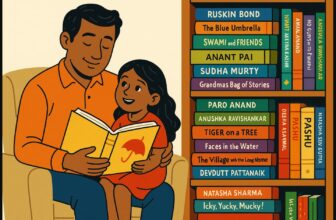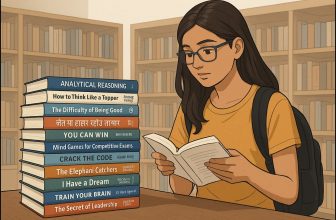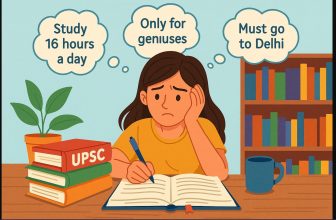Problem-solving is a crucial skill for students in India, especially with the pressure of exams, competitive exams, and a rapidly evolving job market. Whether you’re preparing for exams like IIT-JEE, NEET, or tackling real-world challenges, developing problem-solving abilities can give you a significant advantage. The following 10 books will provide Indian students with the tools, techniques, and frameworks needed to approach any problem logically and effectively.
9 Essential Books for Problem-Solving Skills Every Indian Student Must Read
1. “The Art of Problem Solving” by Sandor Lehoczky and Richard Rusczyk
This is one of the most popular problem-solving books for students, especially those preparing for mathematics and logic-based competitive exams in India. It covers a wide range of problem-solving strategies, helping students break down complex mathematical problems into simpler steps.
- Learn how to approach and solve difficult problems in mathematics and other logical subjects.
- Develop advanced problem-solving strategies.
- Focus on deep understanding rather than memorization, which is key for competitive exams.
2. “The Lean Problem-Solving Workbook” by Norman Bodek
This book offers structured problem-solving techniques that can be applied in academic and real-world situations. It is particularly useful for Indian students looking to solve business, engineering, or technical problems through lean thinking and efficient processes.
- Understand the lean problem-solving framework and how to apply it in practical situations.
- Learn tools like the A3 method to break down and address problems systematically.
- Improve efficiency and effectiveness in problem resolution.
3. “Mind for Numbers: How to Excel at Math and Science” by Barbara Oakley
Ideal for students pursuing STEM fields, Mind for Numbers equips Indian students with practical strategies for solving math and science problems. Oakley breaks down complex problems into manageable steps, which can be applied to solving real-world problems in both academic and professional environments.
- Learn techniques for breaking down complex problems.
- Build strong problem-solving strategies for math and science subjects.
- Understand how to overcome procrastination and mental blocks in problem-solving.
4. “How to Solve It: A New Aspect of Mathematical Method” by George Pólya
A classic in the field of problem-solving, How to Solve It teaches a structured approach to solving mathematical problems. Its four-step method—understanding the problem, devising a plan, carrying out the plan, and looking back—can be applied to any subject, making it a valuable resource for students in India tackling academic challenges.
- Learn a general, systematic approach to solving problems.
- Gain insights into how to break down and approach problems logically.
- Improve problem-solving in any subject by applying Pólya’s method.
5. “Problem-Solving 101: A Simple Book for Smart People” by Ken Watanabe
This book simplifies the process of problem-solving by introducing clear, easy-to-understand frameworks. Watanabe focuses on providing solutions to both simple and complex problems, making it an essential guide for Indian students facing a variety of academic and life challenges.
- Apply simple frameworks to solve complex problems.
- Learn techniques for handling multiple-step problems efficiently.
- Understand how to approach challenges with creativity and systematic thinking.
6. “The Innovator’s Toolkit: 50+ Techniques for Predictable and Sustainable Organic Growth” by David Silverstein and Neil DeCarlo
This book is geared towards students interested in business, engineering, or entrepreneurship, providing actionable strategies to solve problems creatively. For Indian students exploring innovation, this book offers techniques that can be applied to academic projects, business ventures, or even in personal life situations
- Access a variety of problem-solving tools and techniques.
- Learn how to approach challenges with innovative thinking.
- Build practical solutions that can be applied across industries and academic pursuits.
7. “Creative Confidence: Unleashing the Creative Potential Within Us All” by Tom Kelley and David Kelley
This book emphasizes the importance of creativity in problem-solving. It encourages students to tap into their creative potential to find unique solutions to challenges. Indian students who wish to solve problems outside the conventional frameworks will benefit from this book’s focus on creative problem-solving.
- Cultivate creative problem-solving skills.
- Break through mental barriers and limitations to think outside the box.
- Learn to innovate and tackle challenges from fresh perspectives.
8. “Problem-Solver’s Toolkit: A Step-by-Step Guide to Decision Making” by Roger L. Martin
This book teaches students a systematic approach to decision-making, a crucial aspect of problem-solving. By learning to evaluate options and make informed decisions, Indian students can improve their problem-solving abilities, both academically and in real-life situations.
- Develop decision-making skills that enhance problem-solving.
- Learn how to analyze data and evaluate options to make informed decisions.
- Understand the process of reviewing outcomes and adjusting solutions as needed.
9. “The Problem-Solving Method: A Step-by-Step Guide for Beginners” by Stephen P. Robbins
A practical guide that helps students approach problems in a logical, methodical manner. Stephen Robbins’ step-by-step process is easy to follow, making this book perfect for Indian students who need a structured approach to solving academic or real-life problems.
- Gain a step-by-step guide to approaching and solving problems.
- Break down complex issues into manageable components.
- Learn how to define the problem, explore possible solutions, and implement the best one.
Summary:
Problem-solving is an essential skill for Indian students in today’s competitive academic environment. Whether you’re preparing for exams or tackling everyday challenges, these 10 books offer invaluable insights, frameworks, and techniques to improve your problem-solving abilities. By reading and applying the methods in these books, you’ll not only excel academically but also be better prepared for future challenges in your personal and professional life.





